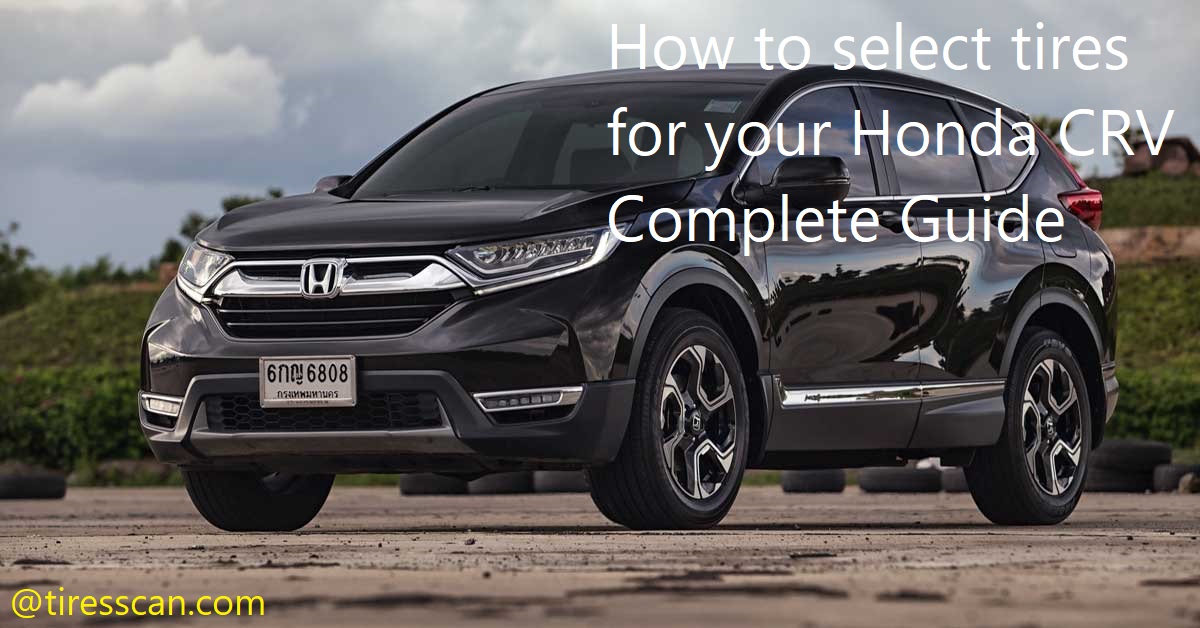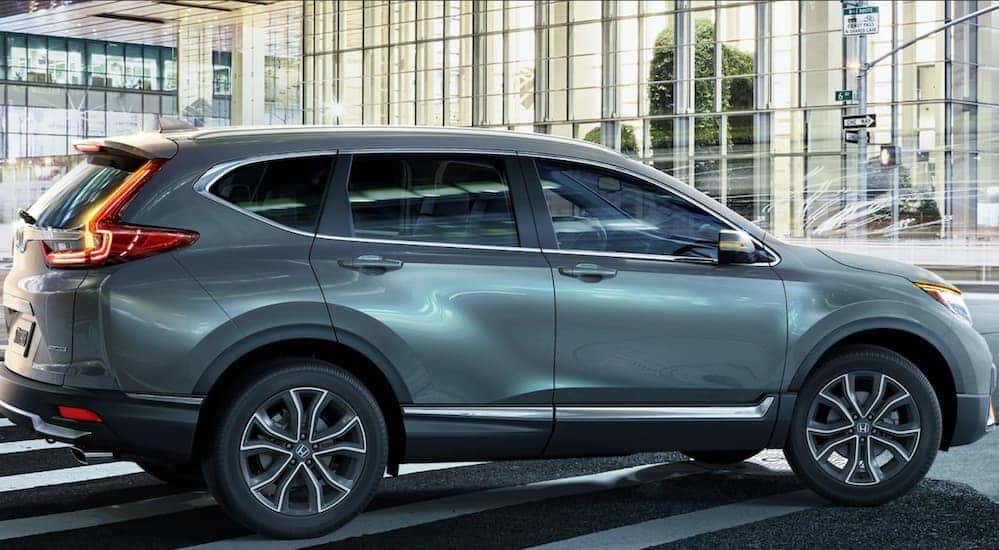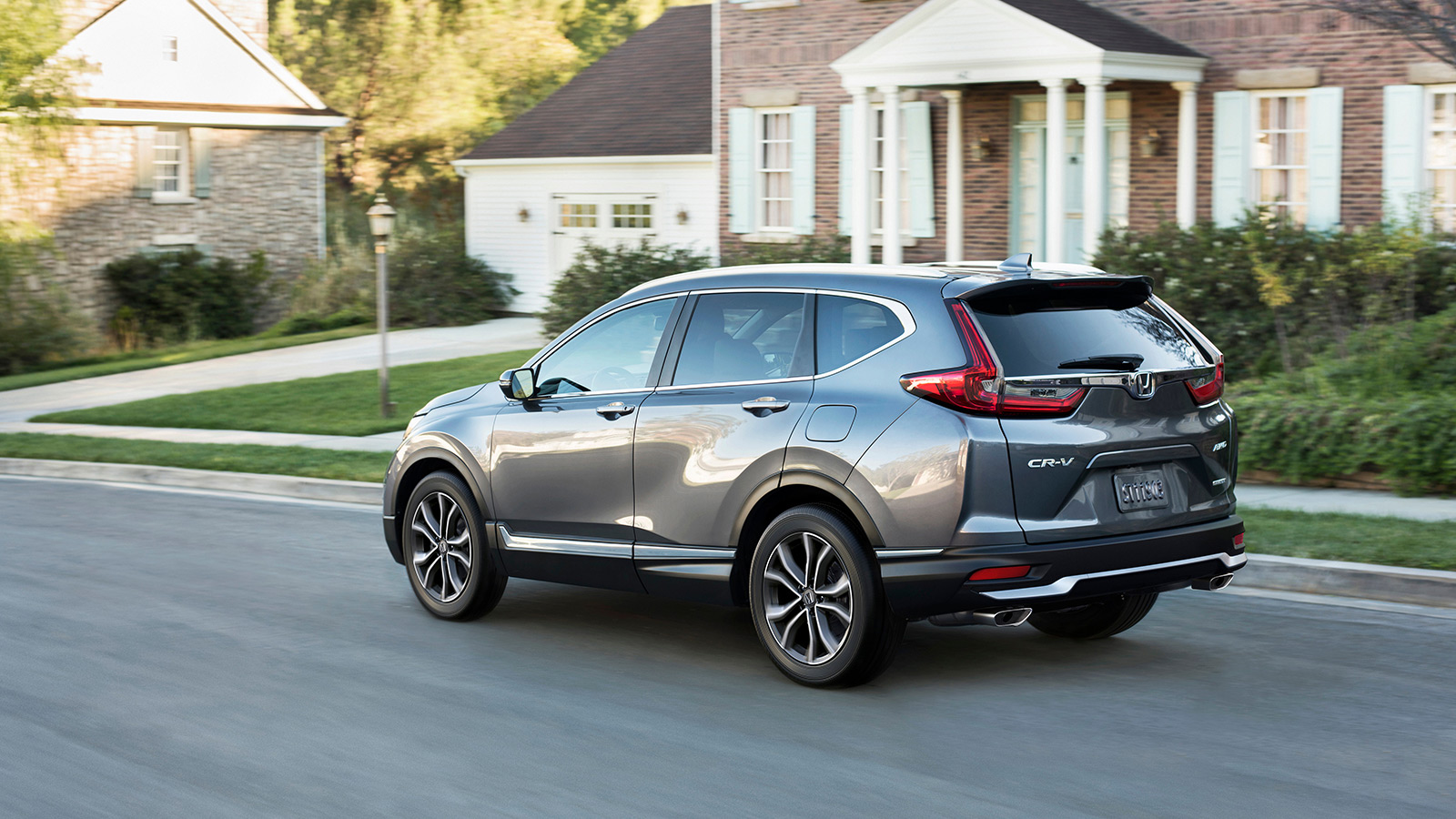Are you worried about selecting the right tires for your Honda CRV? You don’t have to anymore!
This complete guide offers you specific advice and tips on how to choose the perfect tires for your car that will maximize your safety, performance, and comfort. So, let’s get started!
Selecting the right tires for your Honda CR-V can feel like a daunting task, especially when you consider all of the options that are available. There are many factors to consider when selecting the perfect tires for your vehicle, such as size, weather resistance, performance features, and more.
This guide will provide you with an overview of key considerations for selecting the ideal tire for your Honda CR-V and will suggest several popular tire choices that have been proven to perform well on this type of vehicle. By educating yourself about the different types of tires available and learning more about what makes certain models stand out from others, you will be able to make a well-informed decision that meets all of your needs when searching for new tires.
Understanding Honda CRV Tires
When selecting tires for your Honda CRV, it is important to consider the type and size of the tire needed. This will depend on the make, model, and year of your Honda CRV, as well as your personal preferences and driving requirements.
It is important to note that not all tires are created equal when it comes to Honda CRV tires. Different manufacturers may have different types of tires available for different models. Additionally, some models may require specific sizes or types of tires such as all-terrain or winter/snow tires.
When selecting a tire for your Honda CRV, you should look at the sidewall of the existing tire on your vehicle. This will give you important information such as size code and load index value that should be used when selecting a new tire. Other important factors to consider include speed rating, which indicates how fast a tire can safely be operated; tread wear rating which indicates how long a tire should last; traction rating which determines wet braking performance; temperature rating which indicates heat resistance; load rating which determines how much weight a single tire can support; and accessories such as additional features such as puncture protection or reinforced sidewalls.
When making any purchase it is always recommended to check customer reviews or speak with a knowledgeable automotive technician prior to purchasing new tires so that you can be sure that they are the correct fit for your Honda CRV.

Tire size and specifications for Honda CRV
When selecting tires for a Honda CRV, it is important to choose the right size and specifications for your vehicle. It is recommended to use tires that are approved by the Original Equipment Manufacturer. The size of your Honda CRV’s tires will be found on the sidewall of the tire. This information can also be located in your owner’s manual in the maintenance section. It is important to note that different trim levels of your car may require different size tires due to different rim options.
When replacing your tires, it is important to pay attention to the speed rating and load index of the tire as well as its size in order to ensure maximum performance on any terrain or road condition you’re driving in. Additionally, be sure to account for seasonal tire requirement differences between summer and winter months if you drive in climates with variable temperature ranges. All these factors should be taken into account when making a decision on what type of tire best suits your driving needs for every season.
Factors to consider when selecting Honda CRV tires
When it comes to selecting tires for your Honda CRV, there is much more to consider than just a make and model of tire. Whether you are looking to upgrade or repair your existing tires, understanding some key factors will ensure you select the right tire for your vehicle and driving needs.
The top factors when selecting Honda CRV tires include:
- Size – An important factor in selecting the right tire size is checking the sidewall on your current tires. The sidewall will indicate what size and type of tire will fit on your Honda CR-V. A typical sidewall example would look something like “205/55R16 91H” – this indicates that the tire has a width of 205 millimeters, a height of 55% of its width and 16-inch diameter rim size with a load index of 91 and speed rating (H).
- Quality & Durability – When selecting new tires for your vehicle, also consider quality and durability as these both affect how long a set of tires may last before needing to be replaced again. Pay attention to the treadwear grade listed on the sidewall which can give you an idea if one brand or type is considered better quality over another. Also, check manufacturer reviews and product specifications from various sources when selecting OEM/replacement/upgrade options available as this can also help you decide which quality and durability level is best suited for your driving needs.
- Driving Conditions & Needs – The type of tire being selected should reflect where you plan on driving most often or if there are any specials needs in terms of providing better handling in wet or snow conditions etc. Generally, all season tyres work best in all types road conditions while some specialized winter tyres specifically designed for maximum traction on snow can provide additional safety during winter months while touring through mountain passes etc… High performance summer tyres may be suitablefor those looking for more agile steering movement with exhilarating cornering abilities but these won’t do well in wet weathers conditions when as traction levels drop significantly making them unsuitablefor UK/Europe motorists who need to traverse through different types road surfaces throughout all four seasons due various weather patterns across Europe etc..
How to Choose the Right Tires for Your Honda CRV
Choosing the perfect set of tires for your Honda CRV is an important decision. There are several different factors to consider when selecting tires such as size, load rating, speed rating, and tread pattern. The tires that you select should be designed specifically for your vehicle to maximize traction in all weather conditions and provide reliable performance. Knowing the right size of tire is the first step in purchasing tires for your Honda CRV.
The correct size can be found on the driver’s side door jamb or in the owner’s manual. This should include letters and numbers that represent the tire width, sidewall height, wheel diameter, and load index (e.g., 265/70R17). It is also important to make sure that you select a tire with a sufficient load index which is based on the manufacturer’s recommended vehicle weight capacity. Measuring a tire’s speed rating can give you insight into its capabilities at different speeds as rated by kilograms per hour (km/h).
The final factor when deciding what type of tires to purchase for your Honda CRV is tread pattern. Different tread patterns are better suited for different driving conditions such as city roads vs long-distance highway driving or light off-roading vs aggressive off-roading. It is important to choose a tread pattern that will provide excellent traction on any given terrain while maintaining durability over time.
Assess your driving needs
When selecting tires for your Honda CRV, it is important to assess your driving needs to ensure choosing the right tire size and type. Factors that should be considered include the type of driving you do (city, highway, off-roading), the weather conditions where you live, how much cargo and how many passengers you typically carry in the CRV, and how much tread life is necessary. All of these factors can help you determine which tires will be most suitable for your particular vehicle.
Once all considerations have been determined it is time to start researching different tire brands and types. Taking a look at online reviews from other drivers can be extremely beneficial in helping choose a reliable set of tires that fit within your budget. It is important to find reputable sources when researching online reviews as misinformation can lead to an inaccurate opinion of a tire brand or model. Comparing warranties between tire brands and models can provide an idea of the longevity one may expect when operating on particular tires over time.

Determine your budget
When selecting tires for your Honda CRV, it’s important to first know what you want and how much you’re willing to spend on a set. Knowing budget limits is essential so you can filter out the tires that are beyond what is financially possible. While higher-priced tires may have additional features and performance abilities, spending too much can also reduce safety and longevity.
Your unique driving style should be taken into account as well when considering budget prices since different types of drivers will require different performance attributes from their tire choice. Think about the kind of driving you do most often, such as in city traffic or out on the open highway. Additionally, think about your climate since extreme temperatures and road conditions can have an impact on tire wear over time.Durability should also be taken into consideration because higher-end options may offer longer lifespans than cheaper alternatives. With all these points into consideration it will become easier to narrow down options within a realistic budget range that provide practicality as well as great value for money.
Consider the weather and terrain conditions
When selecting tires for your Honda CRV, it is important to consider the weather and terrain conditions you will drive in. All-season tires handle most driving conditions without major problems, but if you are planning to drive in extreme winter or summer conditions, or off-road, specific tires may be needed.
For winter conditions, a tire with a snowflake and mountain symbol is best; this designates a tire that has been certified as capable of handling the challenge of snow, ice and slush. Summer tires feature an aggressive tread pattern that promotes excellent handling in warm temperatures.
Off-road tires typically feature deeper grooves for traction through mud and gravel surfaces. If your Honda CR-V is built with all-wheel drive technology, you may be able to equip it with “mud terrain” style tires for challenging terrain. However, these types of tires are not ideal for driving on paved roads because they are noisy and tend to wear quickly on hard surfaces.
Check the tire’s performance ratings
When selecting tires for your Honda CR-V, it’s important to consider the tire’s performance ratings, including traction, temperature resistance, handling, and wear.
Traction indicates how effectively the tire grips the ground in wet and dry conditions; temperature resistance measures how well the rubber can resist high temperatures; handling indicates the responsiveness of the tires when cornering or braking; and wear indicates how effectively it resists long-term wear and tear.
All of these ratings should be considered before making a purchase — a tire with poor performance in any of these categories isn’t good enough for your Honda CR-V.

Conclusion
In conclusion, selecting the right tires for your Honda CRV is an important process. It requires some research and careful thought to ensure you select the right ones for your vehicle, size requirements, and driving needs. Depending on these factors, you may wish to buy regular or performance tires that are best for highway or city use. You may even want to purchase snow tires or all-season models if you live in regions that receive a lot of snow or experience extreme weather seasonally.
If you’re still unsure about which option is best for you and your needs, be sure to reach out to a certified mechanic who can help guide you towards the perfect selection of wheels and tires for your Honda CRV.
FAQs
What kind of tires are good for a Honda CRV?
Good tires for a Honda CRV are ones that offer good traction, handling, and comfort. Look for all-season tires with good wet and dry traction, as well as good fuel efficiency.
Do you have to replace all 4 tires on AWD CR-V?
It is recommended to replace all 4 tires on an AWD CR-V to maintain even wear and prevent damage to the drivetrain. However, if the other tires have enough tread depth, replacing only 2 tires may be an option.
How do you reduce road noise in CR-V?
To reduce road noise in a CR-V, you can try using sound-deadening materials, changing tires to ones with better noise-reduction technology, using noise-canceling headphones, or installing a noise-cancellation system in the vehicle.
Does Honda CRV come with all season tires?
Yes, most Honda CRVs come with all-season tires as standard equipment.
What tire does Honda recommend?
Honda recommends a variety of tires for the CRV, depending on the specific model and year. Consult the owner’s manual or a Honda dealer for specific recommendations.
How long should factory tires last on a Honda CRV?
Factory tires on a Honda CRV can last anywhere from 30,000 to 60,000 miles, depending on driving conditions, maintenance, and other factors.
Which tires wear faster on AWD?
Front tires on an AWD vehicle generally wear faster than rear tires due to the additional weight of the engine and transmission, as well as the extra stress placed on the front wheels during turning.
Is Honda CR-V AWD good in snow?
The Honda CR-V with AWD is generally considered good in snow, as it provides better traction and stability in slippery conditions. However, it’s important to use appropriate winter tires for the best performance.
When you buy 2 new tires where should you put them?
When buying 2 new tires, they should be installed on the rear wheels to maintain stability and prevent oversteering in wet or slippery conditions.
Why is my Honda CR-V so loud?
A loud Honda CR-V could be due to a number of factors, including worn or improperly inflated tires, worn suspension components, or a damaged exhaust system. It’s important to have the vehicle inspected by a mechanic to determine the cause of the noise.
See also:
- Best Tires For Ram 1500
- Best Tires For Rain And Snow
- Best Tires For Jeep Patriot
- Best Tires For Jeep Grand Cherokee
- Best Tires For Polaris Ranger

